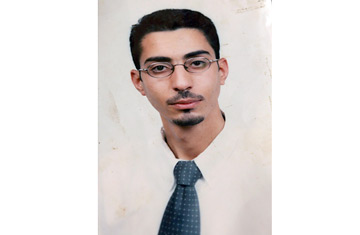
Mohammed Asha
But that peace was shattered in the early hours of Sunday. In the wake of Saturday's car bomb attack on Glasgow's main airport — just a day after two cars packed with explosives and nails were discovered in central London — police raided a house on the Crescent that was home, neighbors say, to two men in their late 20s or early 30s who looked Middle Eastern or South Asian.
So far, it's unclear what link the tenants at the property had with any of the terrorist attacks. (Some British media have suggested it was home to the airport attackers.) But Daniel Gardiner, a local real estate agent who leased the property to a man in April, told TIME his Let-It agency was contacted by police in the hours before the Glasgow attack. Police told the agency that the agency had recently called a cell phone number linked to the failed London bombs. And following the attack on Glasgow airport, one of a list of names given by police to the agency matched a resident of the Neuk Crescent home. "He was a model tenant. Professional, punctual with his rent," says Gardiner.
And there's more evidence police were chasing terrorist suspects in Glasgow some time before the airport was struck. As early as 9 a.m. on Saturday, police checked the logbook of the Paisley Cab Company in connection with the London attacks, Peter Kelso, who runs the taxi firm, told TIME. Shortly after the botched airport bombing, police returned and scoured the logbook specifically for listed rides to the Neuk Crescent address. The logbook revealed that a passenger named "Dr. Abdul" took 18 journeys between the local Royal Alexandra Hospital and Neuk Crescent; and another one-way trip to Glasgow airport on June 13. On Monday, one of the suspects detained in Glasgow was identified as Bilal Abdulla, an Iraqi physician who reportedly worked at the same hospital. It is not yet clear if both incidents refer to the same man.
The speed with which authorities are responding in the wake of the plots is striking. Late Sunday, police detained two further suspects in Scotland. Including the two perpetrators of the attack on the airport and another arrest announced Monday night, the total number of people brought into custody now stands at eight. "It is no exaggeration at all to say that new information is coming to light hour by hour," Scotland Yard's Deputy Assistant Commissioner Peter Clarke said. Links between the plots, he added, were becoming "ever clearer."
Apart from Abdulla, a second detainee is believed to be a practicing doctor. The BBC reported that Dr. Mohammed Asha, a Jordanian-trained medic who worked at hospitals in central England, was arrested along with a woman on the M6 motorway in northern England on Saturday. At least five of the people under custody are thought to be foreign citizens. "We are all very relieved that these terrorists were not Scots or even had any real connection with Scotland," Glasgow Muslim MP Mohammed Sarwar told TIME. "We have 60,000 Muslims living in Scotland and most of them live in Glasgow and surrounding areas. They are very moderate and liberal."
After British authorities over the weekend raised the national terror threat to "critical," its highest level, security has been beefed up at major transport hubs. Glasgow's airport reopened Sunday, a day after the burning Jeep Cherokee plowed into the terminal building at the hub serving Scotland's largest city. One of the Jeep's two occupants erupted from the vehicle, in flames and bellowing, to be felled by punch from a tourist who later told a British newspaper, "He was a big fellow and was disorientated, otherwise I would not have been able to knock him down."
The Jeep's cargo of gas canisters and gasoline failed to detonate fully, providing police with generous quantities of evidence and two easy arrests. Only a day earlier, police in London had seized two Mercedes, also primed as bombs using similar ingredients, but never detonated. The cars were found because one of the crude devices began to smoke, attracting the attention of ambulance workers, who by chance were treating a customer at the Tiger Tiger nightclub in London's Haymarket. The second Mercedes, left illegally parked in nearby Cockspur Street, had been towed to a pound in central London. It, too, was made safe.
Yet if the terrorists who targeted Glasgow and London lacked the technical and planning skills to succeed, any hopes that their attacks were the work of crazed individuals have evaporated. Instead, a picture is emerging of a well-coordinated operation stretching from Scotland to southern England — with the hallmarks of a plot inspired by al-Qaeda.
